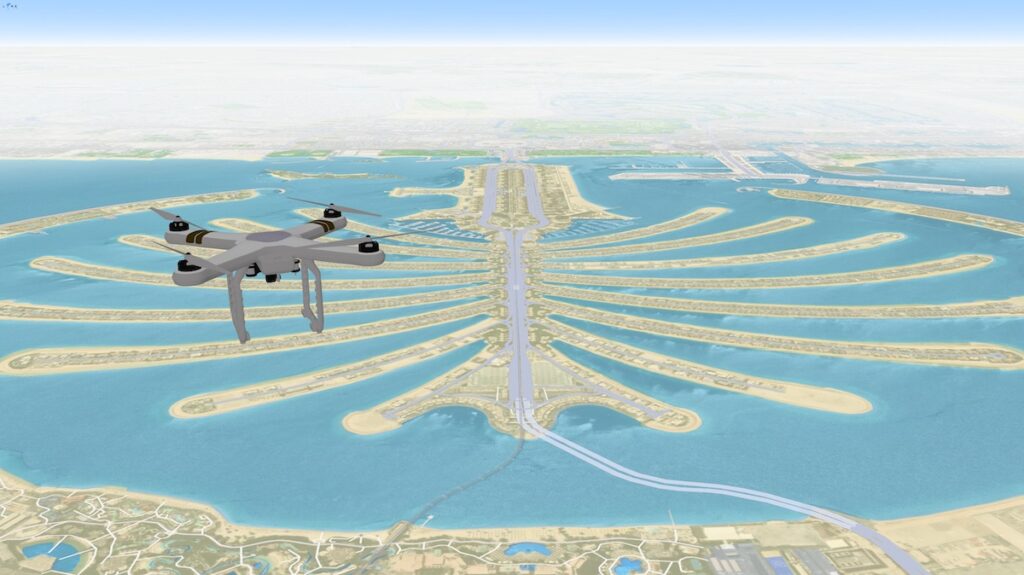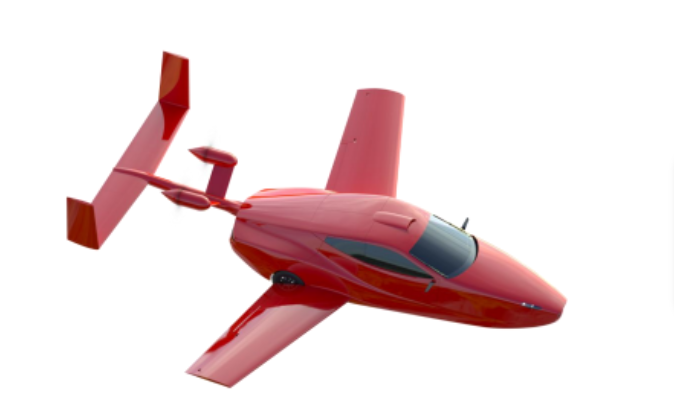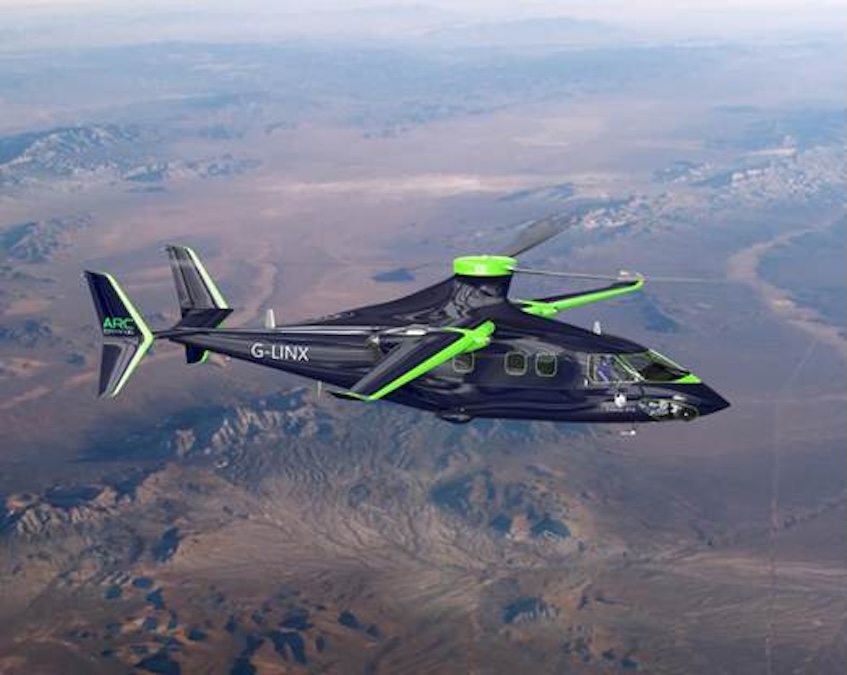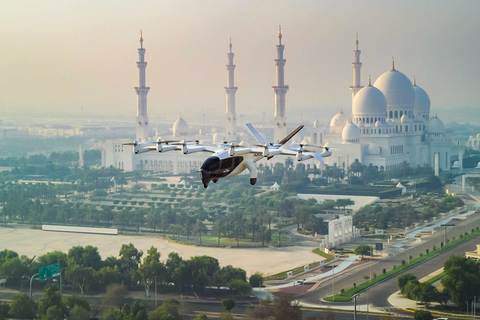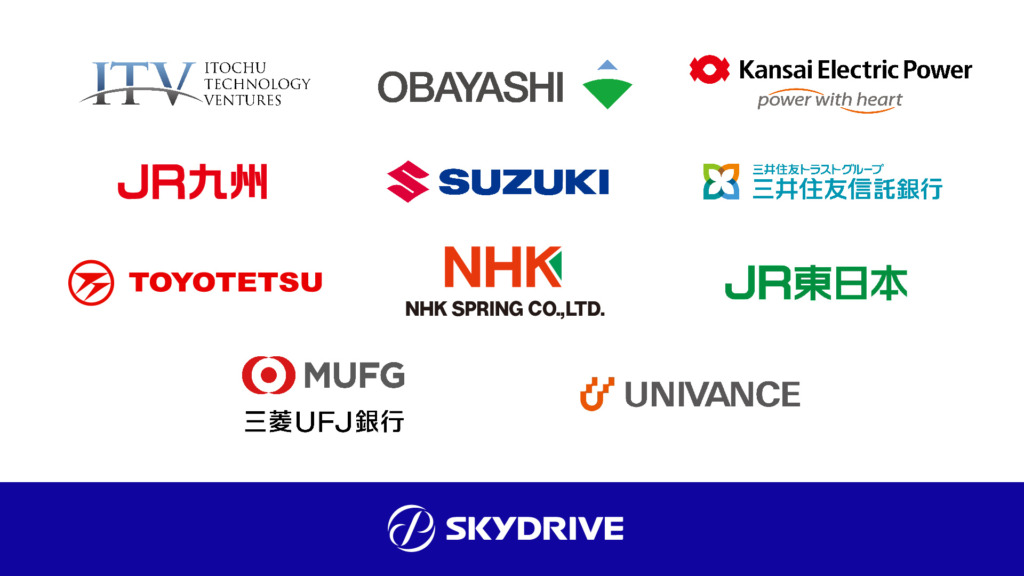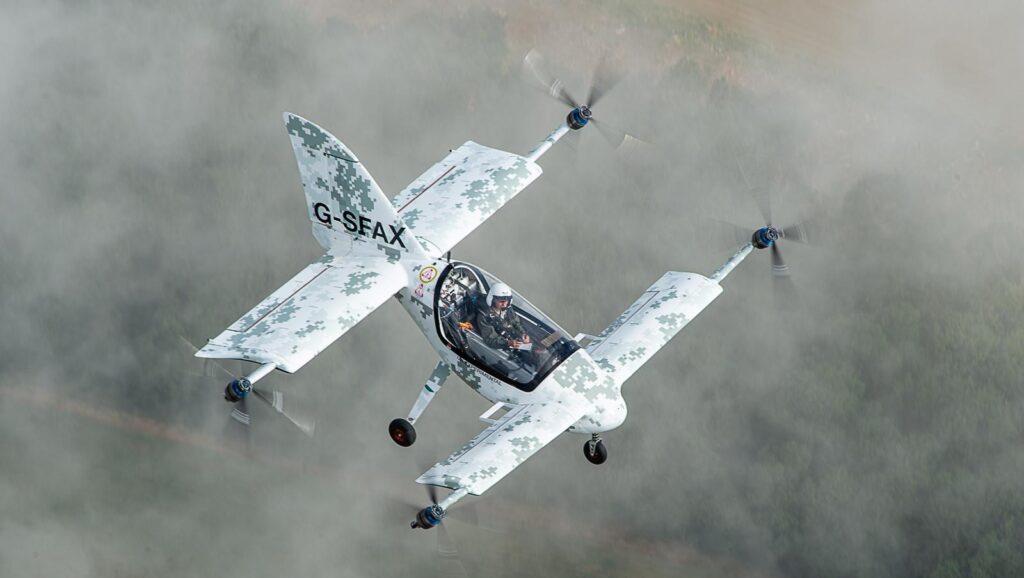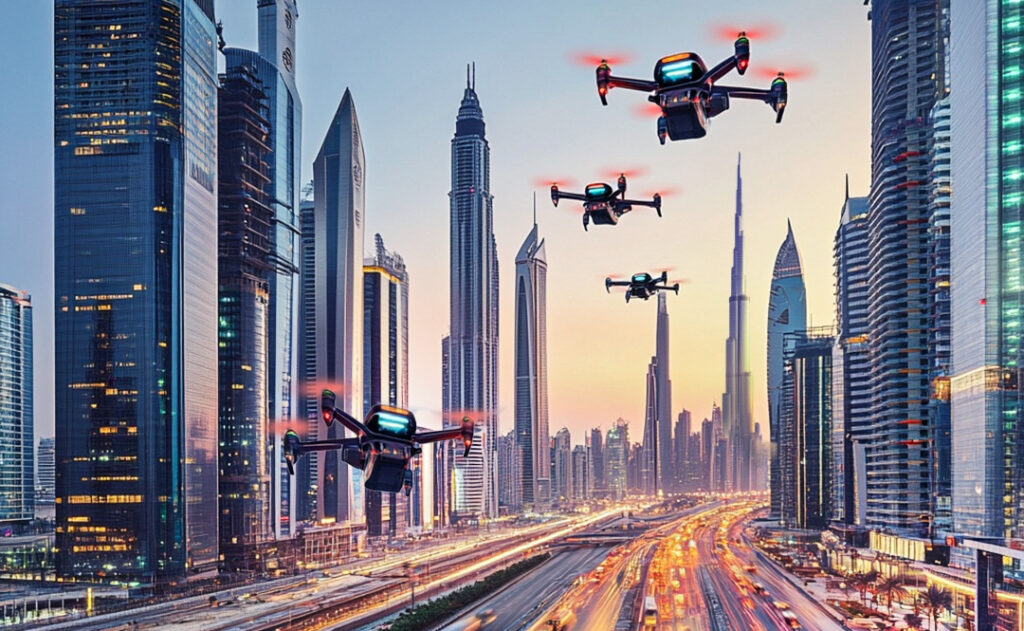
The UAE is commencing air corridor mapping and regulatory framework development for piloted and autonomous air taxis and cargo drones.
This initiative to enhance urban transportation will progress the nation’s mission to lead the future of mobility. Through a strategic partnership between the General Civil Aviation Authority (GCAA) and the Advanced Technology Research Council (ATRC) entities—Technology Innovation Institute (TII) and ASPIRE—the UAE aims to advance the way people and goods move through urban spaces.
With aerial corridors and regulations set to be defined within the next 20 months, the effort will pave the way for safe, advanced, sustainable transportation solutions. These routes will connect key international airports and iconic places in the UAE, extending further to ensure seamless integration of piloted and autonomous air taxis and cargo drones across the nation’s urban landscapes.
The UAE’s approach to urban transportation will be supported by TII’s expertise in airspace management, ensuring the safe integration of piloted and autonomous air taxis and cargo drones into urban environments. These new air corridors will offer innovative solutions for passenger and cargo transport, relieving pressure on traditional road networks and improving connectivity.
With TII developing the technical aspects of AAM and ASPIRE focusing on creating a network of stakeholders, including regulators, industry leaders, and researchers, this collaboration aims to establish a comprehensive regulatory framework that ensures safety and operational efficiency.
His Excellency Saif Mohammed Al Suwaidi, Director General of the GCAA, commented, “Air corridor mapping for piloted and autonomous air taxis and drones is a crucial milestone that will enable the seamless implementation of Advanced Air Mobility into the UAE’s infrastructure. This initiative ensures the safe and efficient adoption of air mobility, delivering transformative solutions to urban transport and paving the way for a smarter, more connected future.”
Dr. Najwa Aaraj, CEO of TII, stated, “This transformative collaboration with GCAA is reshaping the future of urban transportation. By advancing airspace management and integrating piloted and autonomous air taxis and cargo drones, we are not only enhancing urban connectivity but also driving sustainable and accessible mobility solutions that will benefit future generations.”
Stephane Timpano from ASPIRE added, “Addressing real-time urban mobility challenges through innovative solutions like air taxis and drones is a major step forward. This initiative directly supports sustainable economic growth by creating a flexible and diverse transport system that eases pressure on urban infrastructure and fosters smarter, more resilient cities.”
Prof. Enrico Natalizio, Chief Researcher of the Autonomous Robotics Research Center at TII, explained, “At TII, we’re developing advanced AI-powered control, vision and communication algorithms for autonomous systems that enable real-time decision-making for air taxis and drones. Having mastered this technology, we are able to propose methodologies for AAM corridors design to optimize routes, ensure collision avoidance, and integrate seamlessly with urban airspace, marking a key step toward efficient and safe autonomous air mobility in complex urban environments.”



